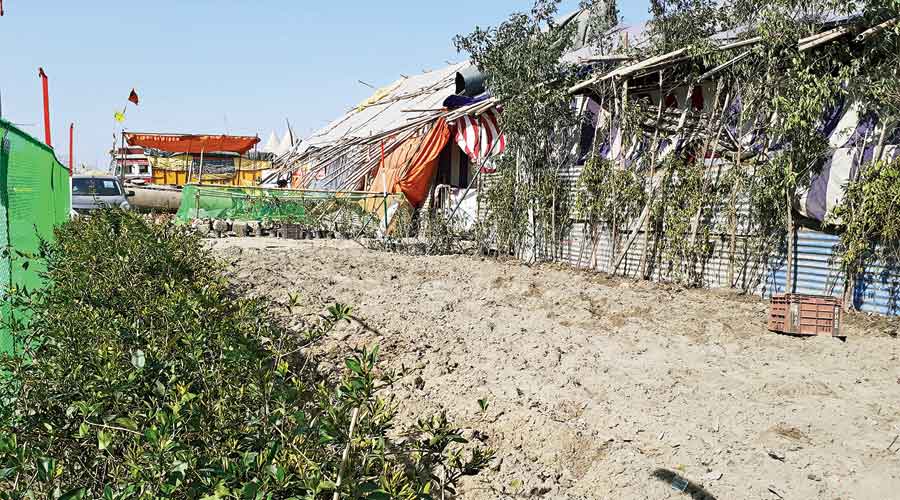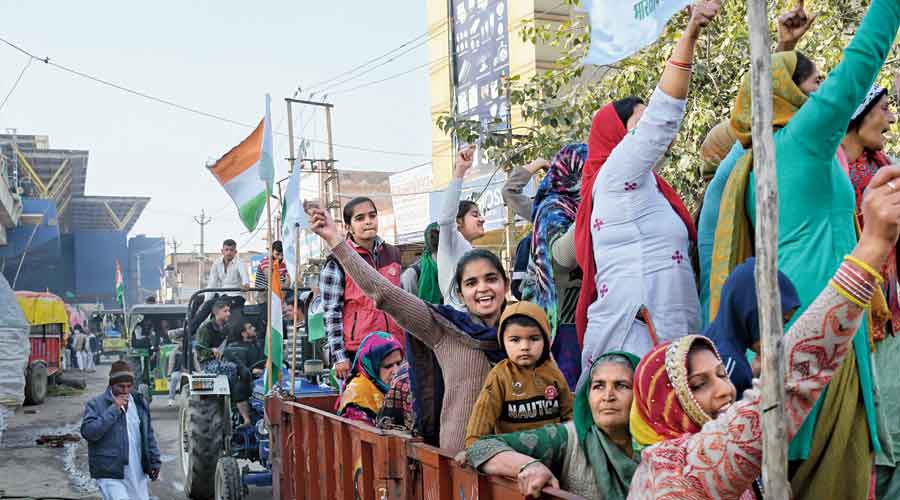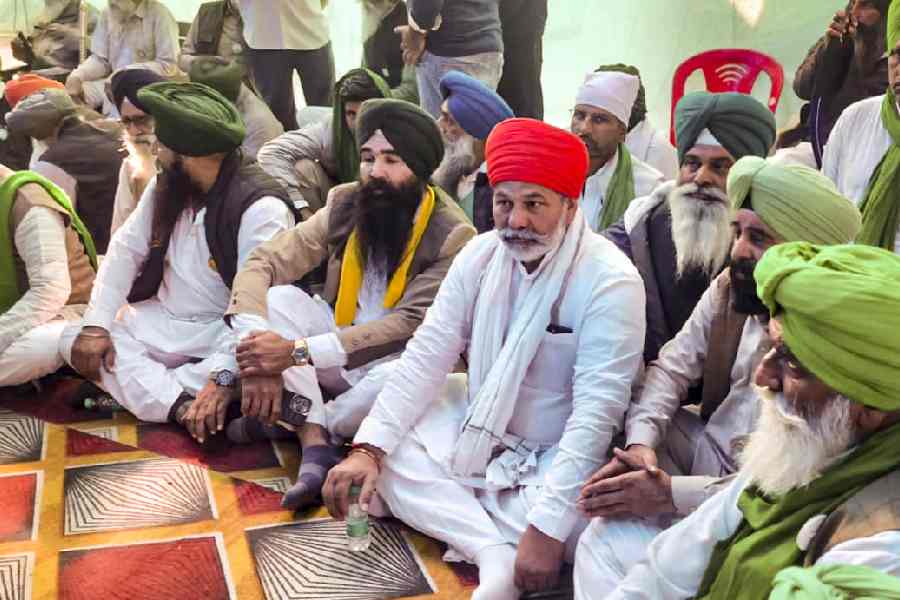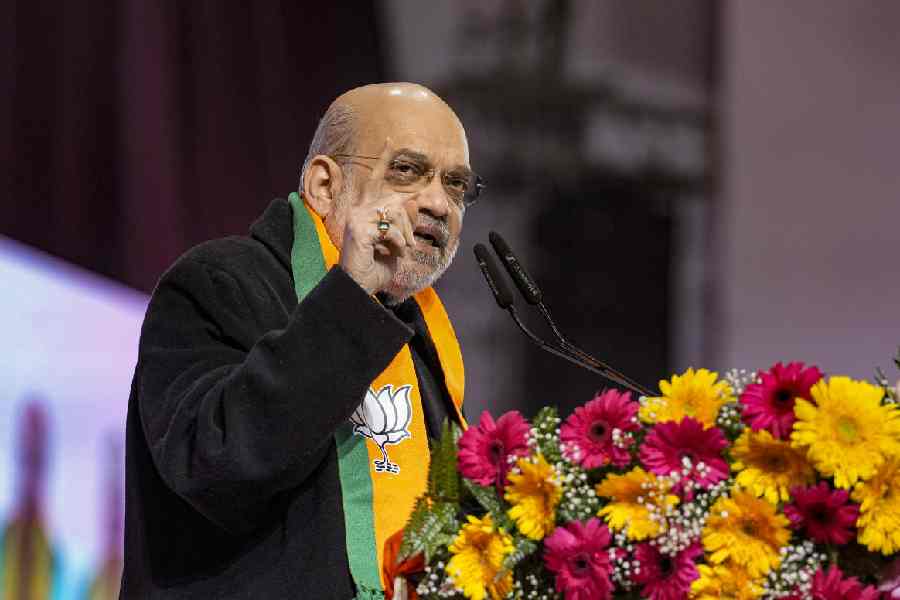Kashmir Singh tirelessly tills a patch in the middle of National Highway 44, just behind the main stage at the farmers’ protest site on the Singhu border.
“Before the summer comes, we will turn this patch into a garden. This will bring relief from the heat. I have transplanted small trees that will give some shade and will erect a thatched hut here too,” he tells The Telegraph, adding that he does not know his exact age but remembers that his parents had told him long ago that he was born around the time of Independence.
A peasant from Punjab’s Ludhiana district, Singh says he “only knows farming, not politics”.
The garden patch is being created on what had become a cesspool of a langar’s makeshift drain that had no outlet. Protesters have channelised the drain underground and connected it to an existing sewer, but pools of refuse where flies and mosquitoes breed are ubiquitous in this tractor-trolley city.
“We braved the winter, now we will brave the summer. We have already bought mosquito nets and installed fans. Life is not easy living in a trolley, but it will be much harder once corporate houses begin to exploit the new farm laws and our future generations face uncertainty and debt and practically become bonded labour to big companies,” Ranjit Singh Akkar, a farmer from Patiala, tells this newspaper.
Akkar and other seniors supervise sanitation around the langars. Youths with insecticide smoke dispensers carry out mosquito fogging of the protest area — a task normally performed by civic bodies.
“If (Prime Minister Narendra) Modi wants, we will all leave in a day once he repeals the laws. He has already seen that police and thugs can’t chase us away. Locals have been hugely supportive, offering bathing and toilet facilities in their homes and shops, especially to women. We have learnt not to depend on public authorities and manage civic work like sanitation and drainage on our own. We are not experts but we are learning,” Akkar says.
He and others from various farmers’ groups are building public opinion for a countrywide general strike on March 23 — the 90th anniversary of the execution of freedom fighter Bhagat Singh by the British colonial government. Bhagat Singh’s images and writings, as well as those of other freedom fighters such as Ajit Singh and Kartar Singh Sarabha, are commonplace here and are popularised by communist groups.
Urmila Rawat, a central committee member of the CPIML-Red Star from Madhya Pradesh’s Sidhi, is part of a team that talks to protesters at the Singhu border about how the new farm regime and other economic policies of the Centre like privatisation, rising fuel prices and new labour laws are linked.
“Groups of us from different parts of India come and stay here for 15 days at a time. Women play a greater role in agriculture and managing households than men do and we continue to do so even through this struggle. It helps that this is a movement of agricultural producers, so food is never in shortage,” she says.
Like Rawat, Kashmir Singh and Akkar also take turns to stay here. The wheat harvest is near and most peasants here have made arrangements with kin, friends and neighbours to harvest their crops.
Kuldeep Singh, a young entrepreneur from Ludhiana, stays with Kashmir Singh in a tin shed beside the upcoming garden.
“We erected this makeshift shed with the idea that this would be a short agitation. But now we are preparing for the long haul. We will soon replace our tin roof with a wooden one that is better suited for the summer heat. The crowd is now smaller and manageable, and our friends reach within a few hours from Punjab whenever needed,” Kuldeep says.
“We have suffered some loss as we are not giving full attention to our crops or our businesses for the last three months. But relationships and bonding have greatly improved within my family and also with friends. Working for this cause has brought us closer. I have seen so many seasons in my life and I am willing to see many more on this highway if that is Wahe Guru’s will,” Kashmir Singh weighs in.












